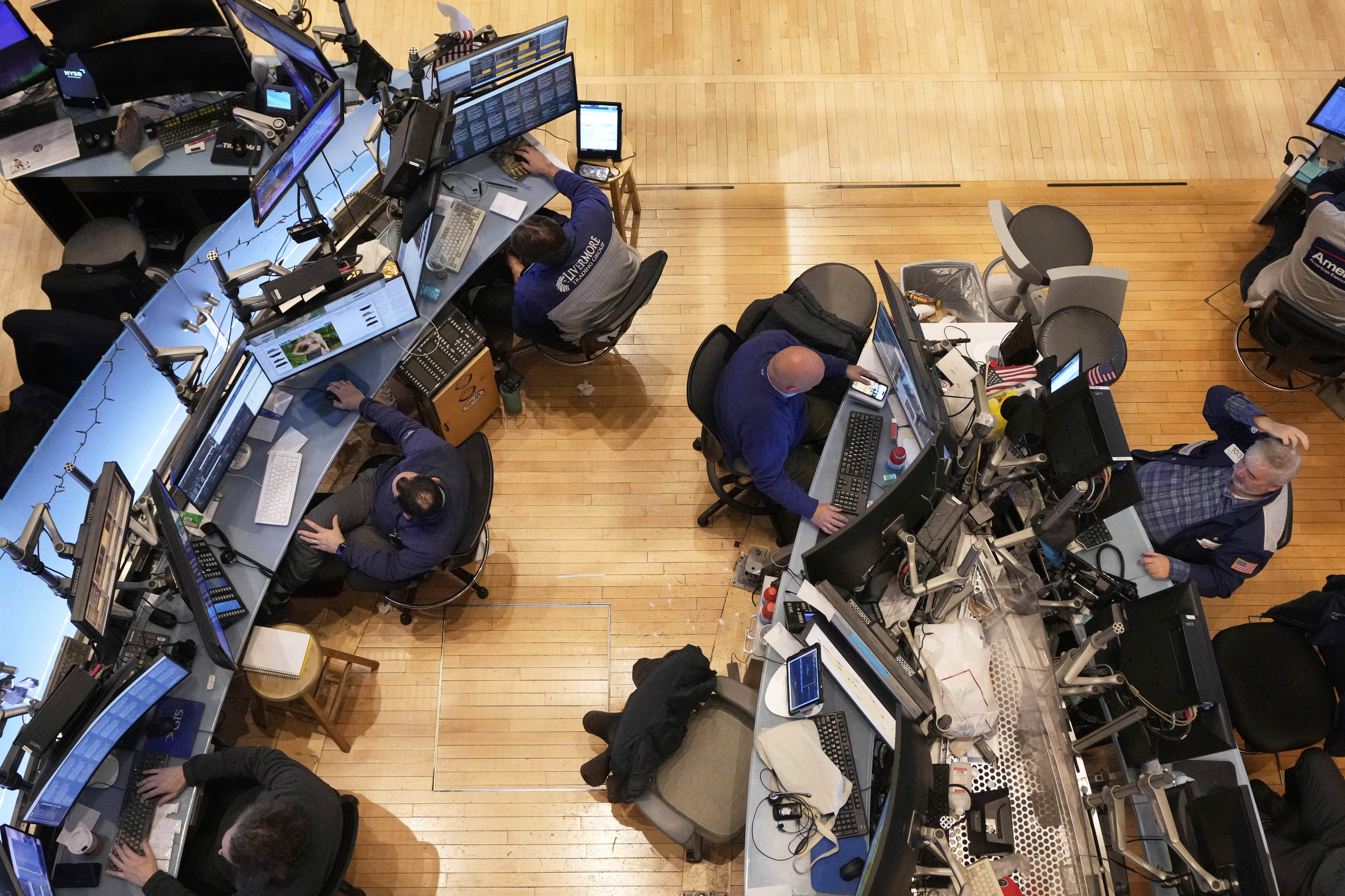Wall Street has brought back to earth those who were about to celebrate a truce in tariff imposition lasting exactly 90 days. The American market opened with losses close to 2%, to offset the historic purchases experienced yesterday - close to 10% in its main stock indices. The S&P 500 is down nearly 2%, while the tech-heavy Nasdaq retreats 3% in a new session as analysts agree that uncertainty has not evaporated from the market.
Companies like Tesla, which surged yesterday after Trump's good news, are down 5%; semiconductor manufacturer Nvidia drops another 4.6%, Amazon slightly less than 3%, and Apple suffers losses of 2% in the early stages of the session.
Investor euphoria remains in Europe, where gains from the last two hours of open market in Wall Street were mirrored. The reversal by Donald Trump in his tariff policy has given investors a boost. Thus, the Ibex 35 opened with a spectacular 8% rebound, a rise of 990 points to above 12,800 points at the opening, mainly driven by an 18% increase in ArcelorMittal and significant rebounds of around 14% in Banco Santander and CaixaBank. In the early stages of the session, there were some issues crossing the flood of buy orders, and some companies struggled to set prices in the first few minutes. After the initial euphoria, the Spanish index contained the gains to 5%.
By mid-morning, it was announced that the European Union is also joining the 90-day pause to negotiate its tariff policy, reminding that if no agreement is reached, these border tariffs will come into effect in three months, delaying the agony. This decision is boosting European indices with gains of 6% for the Italian Mib, one of the most affected markets in Europe due to its export profile; in the case of the German Dax, it rises another 5% along with the European index, the EuroStoxx 50.
The sequence of events reflects the chaotic behavior of the US president, capable of moving markets at will with each public decision. Yesterday, Europe closed negatively, with losses near 2%, partly due to Wall Street's timid opening, especially in tech stocks within the Nasdaq index, which were up over 4%, such as Tesla, owned by Donald Trump's advisor, the controversial Elon Musk. At midday, the US president suggested it was a good time to buy in the market. "THIS IS A GREAT TIME TO BUY!!!," he wrote on his social media, Truth. Hours later, he announced, without much explanation, a "pause" in the application of tariffs to 75 countries or regions, including the European Union, lasting 90 days. All except China, to which he decided to raise rates to 125% once again.
The Nikkei 225 index closed with a 9.1% increase at 34,609 points, while the broader Topix index grew by 8% to 2,539.4 points. In Seoul, the Kospi index rose by 6.6%, and the Sydney stock market by 4.5%. However, the Chinese market had little to celebrate, with a modest 2.3% increase. This is one of the market's concerns, observing the ongoing trade war escalation between the two largest global powers, China and the US. China will meet again this Thursday to decide whether to take measures to stimulate the economy and counter the new tariffs imposed by the US on its exports. One variable is the devaluation of the yuan, which could cause a market earthquake if it follows the 2015 trend. China's response yesterday was to apply an 84% tariff on US products.
The fear of a recession seems to have eased due to the behavior seen in key assets like oil and bonds. The European reference crude oil, Brent, falls by 4%, below $63 per barrel, after yesterday's rebound. The fear index, which has resurfaced in recent days, was contained yesterday and continues to deflate to 37 basis points, down from over 50 touched less than 24 hours ago, at pandemic highs. And what about the bond market? This is the main focus of the Trump administration's change of heart. Analysts believe that the selling pressure on US Treasuries is what ultimately led the US president to reverse his decision. Currently, the massive purchases seen in German debt in recent days are being unwound, and today the bund rises to yields of 2.64%.
However, Aberdeen's management still sees some risks despite the "pause" adopted by the White House. According to their analysts, "companies may struggle to adapt, invest, and grow significantly due to this abrupt policy change, especially given the current and forthcoming uncertainty," as they believe that the 90-day impasse will end with much tougher tariffs for countries with which the US has not reached an agreement.
In the same vein, Renta 4 believes that "markets will also remain focused over the next three months on negotiations between major trading partners and the US, and on negotiations (or new retaliations) with China. Uncertainty remains high, and the best barometer is gold," which rose 3% yesterday and an additional 1% this morning," as stated in their daily analysis.
